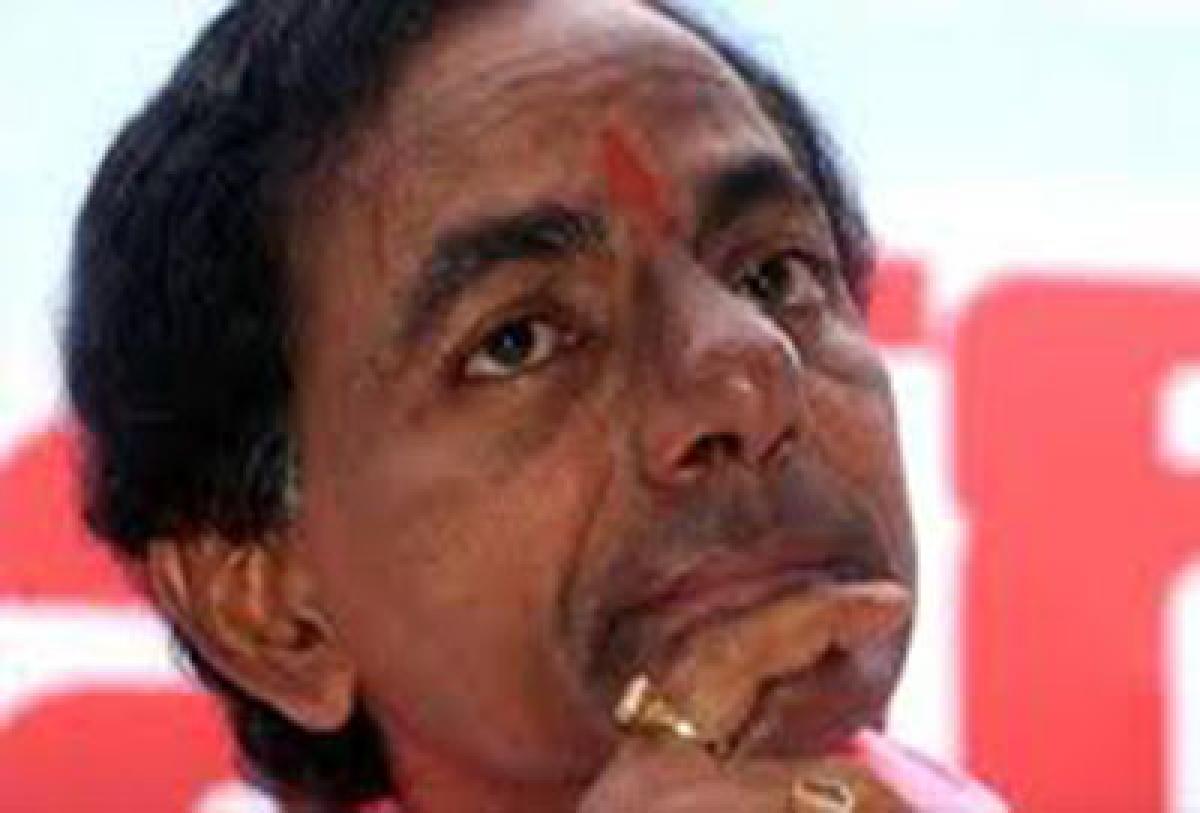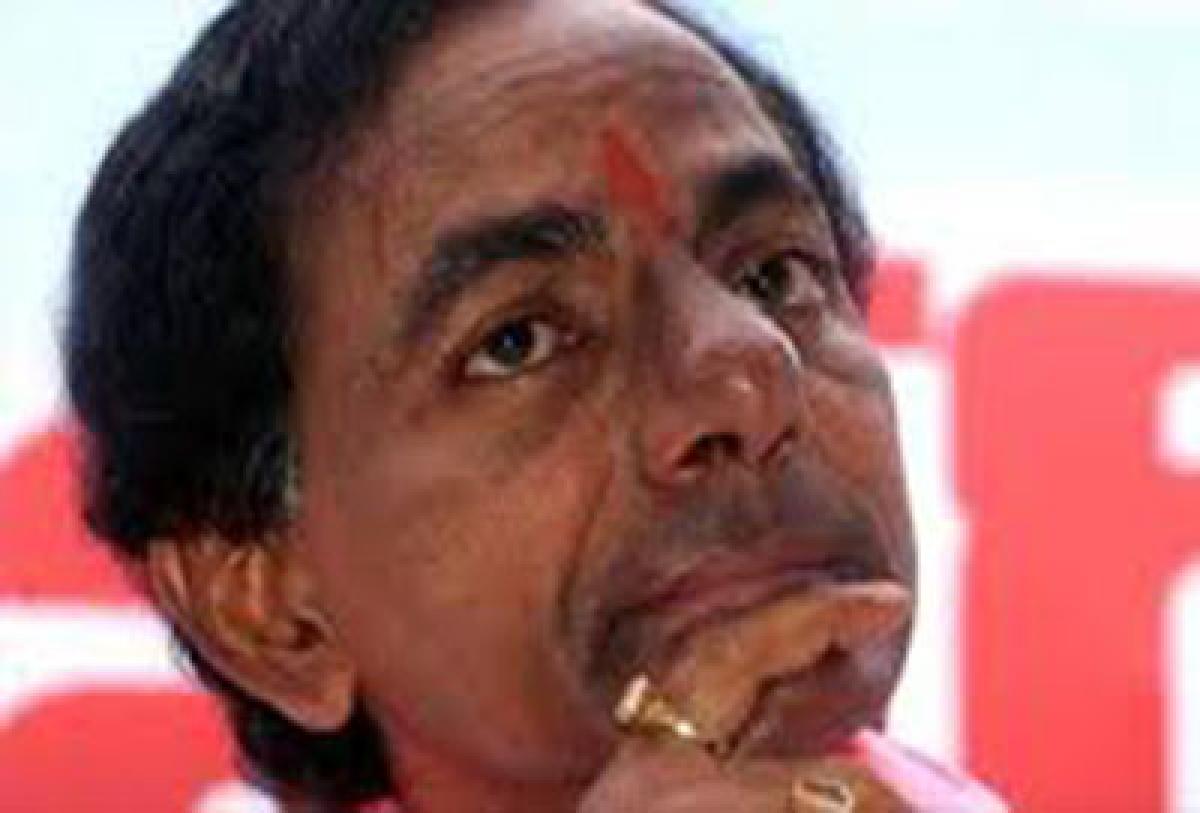Live
- Hindus living in fear under Congress regime, claims K'taka BJP leader
- Apple Releases iOS 17.5 Beta Update with New Features and Enhancements
- Bellamkonda Sai Sreenivas embarks on new thriller project
- Meg Lanning reveals exercise obsession, not eating enough food led to international cricket retirement
- Bajaj Auto's net profit rises to Rs 2,011 crore in Q4, declares dividend of Rs 80 per share
- Even if you don't vote for your son, give him blessings: Rajnath Singh tells A.K. Antony
- Hello Baby song launch event was held by Music Director Koti
- Lyrical marvel ‘Lachhimakka’sets stage for Virinchi Varma’s ‘Jithender Reddy’
- Vikata Sankashti Chaturthi: Date, Time and Ritual
- Juhi Parmar oozes ‘lots of femininity’ as she dons pink co-ord set for ‘Yeh Meri Family’ S3 promos
Just In

In a welcome move, the Telangana State government has bowed down to an overwhelming public sentiment. Not only is the decision to abandon the proposed cheap liquor policy a healthy retreat, it is in the fitness of things that Chief Minister K Chandrashekar Rao acted in true democratic spirit while admitting that the move was being shelved because it had evoked mixed reactions.
 In a welcome move, the Telangana State government has bowed down to an overwhelming public sentiment. Not only is the decision to abandon the proposed cheap liquor policy a healthy retreat, it is in the fitness of things that Chief Minister K Chandrashekar Rao acted in true democratic spirit while admitting that the move was being shelved because it had evoked mixed reactions.
In a welcome move, the Telangana State government has bowed down to an overwhelming public sentiment. Not only is the decision to abandon the proposed cheap liquor policy a healthy retreat, it is in the fitness of things that Chief Minister K Chandrashekar Rao acted in true democratic spirit while admitting that the move was being shelved because it had evoked mixed reactions.
Even as the strident opposition will try to pat themselves on their backs, it is the argumentative democracy-inspired and deep-rooted Indian tradition that has scored a moral victory. The government's retreat is bound to bolster the civil society to chart a similar course against any future ill-conceived anti-people policies.
In the same breath one has to welcome the decision to crack the whip on the ever-thriving illicit liquor trade that has taken a heavy toll of the have-nots. That Rao means business gets a shot in the arm with the decision to add teeth to the PD Act in the cleansing operation against elements producing fatal attractions like gudumba. It is a well networked mafia racket that is co-conspired by the nexus between police, politicians and illicit liquor producers, who splurge money to stay in business.
As a reassuring measure of its seriousness, the government would do well if it addresses the corrupt polity, first and foremost. A rough estimate suggests that the total money spent by addicts is more than half of the annual State Budget! Even more shocking is that a majority of the pension-receiving and emotion-ridden young widows are the victims of this social malaise.
The savings, howsoever miniscule, are squandered by the poor throwing the family into distress and destroying the future of children. Unfortunately, successive governments have always perceived liquor as a major revenue earner, despite the social ramifications. Consequently, the governments are guilty of tacitly encouraging sale of liquor to boost the coffers in utter disregard for the constitutional dream of freeing the society from the scourge of liquor.
It is rather ironic that in a country that has a dismal record in achieving water for all, and even more lackadaisical Right to Education, the availability of liquor is mind-bogglingly shameful. Agreed that total prohibition is impractical and its implementation even more of an uphill task, but the least the governments could do is initiate measures that can keep a check on the free flow of liquor.
As Vavilala Gopalakrishnaiah once judiciously observed, the menace could hopefully be curbed using a three-pronged strategy: checking its free and abundant availability; government and civil society jointly firming up steps to curb illicit liquor brewing; and, more importantly, the people taking up the onus, as a societal responsibility, to create awareness on the perils of liquor.
After all, no government, on its own, can usher in such a Utopian social change. It makes sense if the policy-makers come out of liquor intoxication and the electorate breaks free from political intoxication.

© 2024 Hyderabad Media House Limited/The Hans India. All rights reserved. Powered by hocalwire.com







